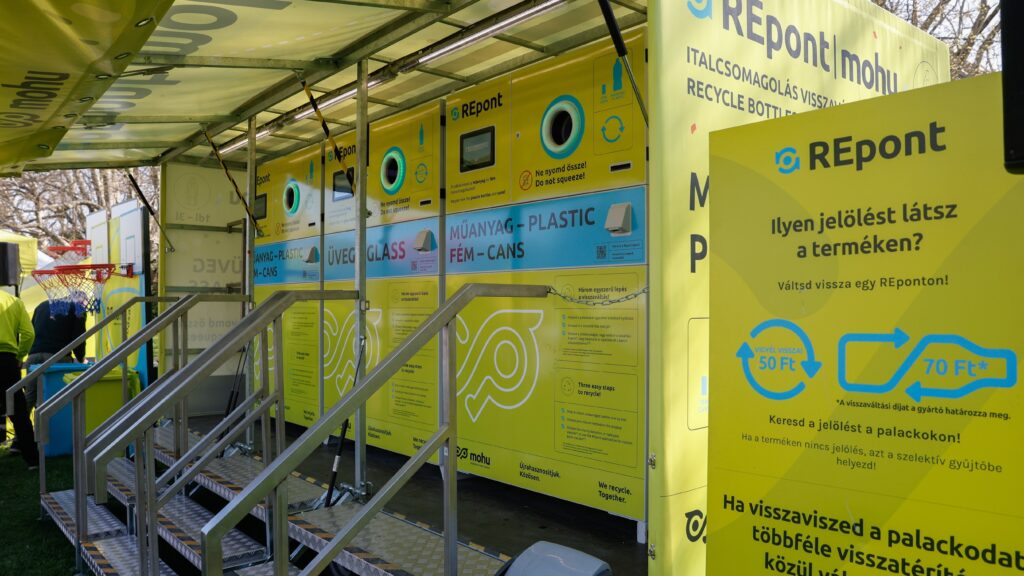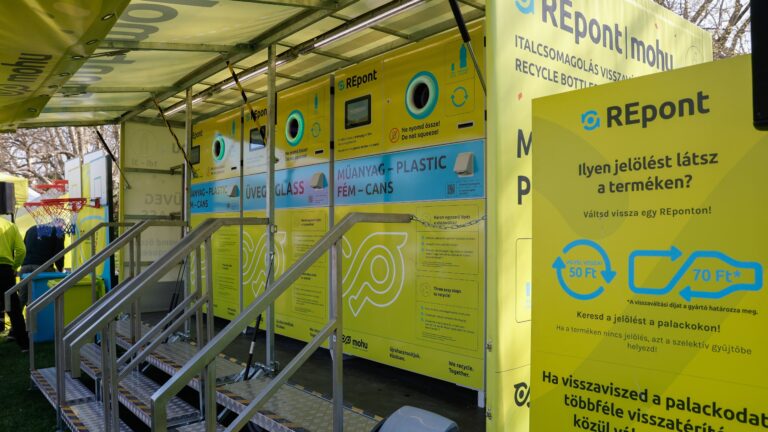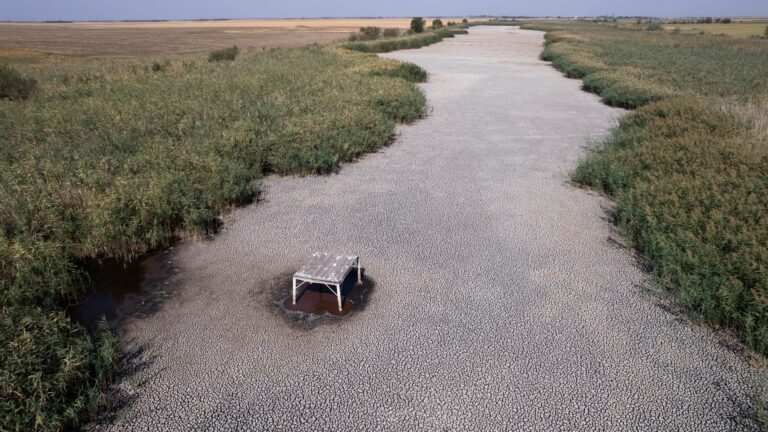In the latest episode of the podcast Blue Planet, former Hungarian President János Áder, the host of the show, engaged in a discussion with András Gelencsér, the Rector of Pannon University. The covered topics related to sustainability, renewable energy, and contemporary lifestyle challenges.
Professor András Gelencsér’s thought-provoking book Ábrándok bűvöletében – A fenntartható fejlődés korlátai (Enchanted by Dreams – The Limits of Sustainable Development), was the focal point of the conversation. Áder, as the Chairman of the Board of the Blue Planet Climate Protection Foundation, highlighted Gelencsér’s expertise in challenging various sustainability-related myths prevalent in the current discourse.
Speaking about the motivation behind his book, Gelencsér argued that many raw materials could deplete within a few decades, making energy transition impossible. Pointing out that the Earth operates as a closed system in terms of material circulation, Gelencsér stressed that humanity can only utilize resources that have been present on Earth for the past 4.5 billion years. Additionally, human interventions cause the dispersion of concentrated raw materials.
A fenntarthatóság bűvöletében: az életmódunkon kell változtatni
Tudták azt, hogy a globális internetfelhasználás nagyobb energiát igényel, mint a repülés? És azt, hogy a megújuló energiahordozók anyagaikban nem megújulók és jelentős karbonlábnyomuk van? A Pannon Egyetem rektora Ábrándok bűvöletében cím könyvében szakmai érvekkel cáfol számos olyan hiedelmet, ami a jelenlegi közbeszédben elhangzik.
Áder recalled the recent climate conference in Dubai, where the preparatory committee recommended a threefold increase in renewable energy production by 2030. Gelencsér countered that even
the tools used for renewable energy production require raw materials and fossil energy carriers,
which may not be readily available within such a short timeframe. Expressing scepticism about the effectiveness of climate summits, Gelencsér argued that the guidelines set in the Paris Climate Agreement, accepted almost a decade ago, are not being adhered to. He noted that fossil fuel emissions have continuously increased, except during the COVID period. Regarding the utilization of solar and wind energy subject to environmental conditions, Gelencsér stated that the world cannot function without stable electricity production, which requires the use of fossil raw materials or nuclear energy.
Discussing hydrogen as an energy storage material produced from natural gas, coal, and water,
Gelencsér criticized the EU’s hydrogen strategy as an illusion.
He highlighted the inefficiency of gas production and usage, with 70 per cent of invested electrical energy being lost in the process. Moreover, the release of hydrogen into the atmosphere contributes to the growth of methane, a greenhouse gas.
Áder drew attention to the threefold increase in energy consumption by people, outpacing population growth, and questioned Gelencsér about the role of nuclear energy. Gelencsér responded by stating that over four hundred reactor blocks operate worldwide, with each power plant generating at least seventy-five times more electricity during its operational life than required for its construction, operation, and decommissioning. He emphasized the minimal material use in nuclear energy production.
In contemplating the future, Gelencsér stressed that nuclear energy is no panacea, as securing the future of humanity requires a reduction in material and energy consumption and a departure from excessive consumption patterns.
Related articles:
Sources: Hungarian Conservative/Blue Planet/MTI








